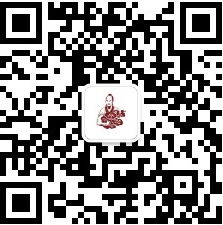Qi deficiency (气虚) is a common condition in Traditional Chinese Medicine (TCM), characterized by symptoms such as excessive sweating, fatigue in the limbs, and poor appetite. Over time, it can severely affect the normal functioning of the body’s organs. So, what are the symptoms of Qi deficiency? How can one adjust to a Qi deficiency constitution? What foods are beneficial for Qi deficiency?
Firstly, it is important to note that women are generally more prone to Qi deficiency than men. Qi deficiency primarily results from insufficient energy in the body, a sensitivity to cold, and weak Yang energy. Factors such as prolonged mental exertion, emotional instability, or malnutrition can contribute to a Qi deficiency constitution. Therefore, it is essential to cultivate good lifestyle habits and pay attention to these factors in daily life.
01Signs of Qi Deficiency01Substantial Weakness
Individuals with Qi deficiency often exhibit signs of substantial weakness. To determine if you have a Qi deficiency constitution, observe your body shape; if you are overweight, it may indicate a need to tonify Qi. People with Qi deficiency tend to be overweight, and their skin may appear loose, dull, and lacking luster.
02Intolerance to Cold and Heat
People with Qi deficiency are generally intolerant to both cold and heat. This is because their constitution is relatively weak; they tend to sweat easily when temperatures rise and feel cold when temperatures drop. From a TCM perspective, Qi helps regulate body temperature and controls the state of the skin’s pores. Individuals with Qi deficiency have a poor ability to regulate body temperature and cannot effectively control sweat gland secretion, leading to symptoms of cold intolerance and excessive sweating.
03Poor Appetite
Another common symptom is poor appetite. Individuals with Qi deficiency often have weak spleen and stomach function, leading to a lack of appetite and feelings of bloating or pain after eating.
04Spontaneous Sweating
Spontaneous sweating refers to sweating without physical exertion, which is abnormal. The body’s digestive and endocrine systems have specific functions to maintain organ operation. Excessive sweating can lead to overall fatigue and palpitations; for instance, excessive sweating on the back can disrupt sleep and impair memory.
02How to Adjust Qi Deficiency01
Firstly, it is important to increase physical exercise. Many patients with Qi deficiency develop this condition due to their living environment and dietary habits. Therefore, engaging in regular physical activity can enhance physical fitness, relieve stress, and improve mood. Outdoor activities during good weather can promote overall blood circulation and increase metabolic rates.
02
Additionally, it is crucial to manage stress and avoid excessive psychological burdens. Ensure adequate sleep, maintain a regular sleep schedule, and cultivate an optimistic mindset.
03
Moreover, in terms of diet, avoid overeating and steer clear of spicy and stimulating foods. Opt for foods that tonify Qi, such as millet, glutinous rice, carrots, potatoes, eggs, and shiitake mushrooms. These foods can effectively strengthen the spleen and benefit Qi.

The above is for reference only; please adjust under the guidance of a physician.
Contact Us
Address: No. 4 Feixiang Road, Tiexi District, Shenyang City
Phone: 024-23395888, 024-23903502
024-62772299, 15609888842
Transportation: Take bus routes 170, 117, 203, 257, 252 to Shibote Community Station, or take Metro Line 9 to Huaxiang Station and transfer to the above bus routes.

If you enjoy our content,
please click on the business card below
and follow our public account
to see our updates daily.
↓↓↓
Follow Shengkang Health
Learn useful health knowledge every day!
On the road to health, we are willing to walk with you seriously.
For more health and wellness information,
please scan to follow.



If you like it, please give a “thumbs up”
Feel free to share with your friends!

